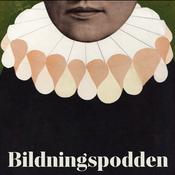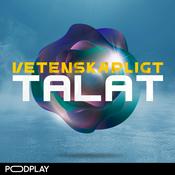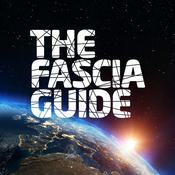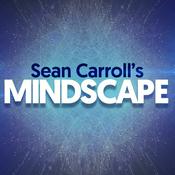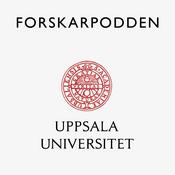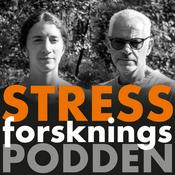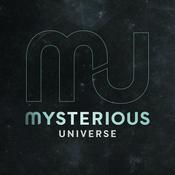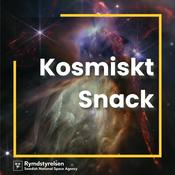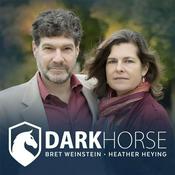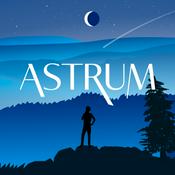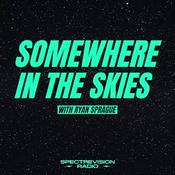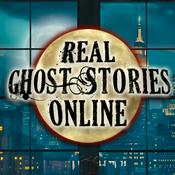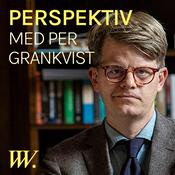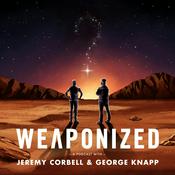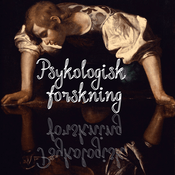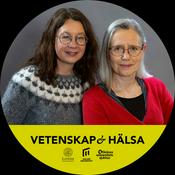2152 avsnitt
Duy Lap Nguyen, "Walter Benjamin and the Critique of Political Economy: A New Historical Materialism" (Bloomsbury, 2024)
2026-1-27 | 38 min.Walter Benjamin was a German-Jewish intellectual and philosopher associated with the Frankfurt School, who tragically died at 48 years old in 1940 as he fled the advance of the Third Reich on the French-Spanish border. Most writers and critics see Benjamin’s work as fragmented, disjointed, esoteric and dispersed, with no clear narrative or cohesive philosophy. Duy Lap Nguyen, Associate Professor in World Cultures and Literatures at the University of Houston, paints a different picture of Benjamin’s work. In Nguyen’s revealing, latest book, Walter Benjmain and the Critique of Political Economy: A New Historical Materialism (Bloomsbury, 2024), he navigates through Benjamin’s complex organon and meticulously puts together these apparently disperse philosophical threads into a cohesive whole.
Nguyen argues that Benjamin’s work demonstrated a holistic philosophical project, and he takes the reader through the latter’s early critical engagement with anarchist praxis and Kantian thought, through to Benjamin’s ‘Marxist’ turn that put him in conversation with the Frankfurt School. The historical materialism of Benjamin, Nguyen carefully demonstrates, was centred on his critique of the ahistorical conceptions of time and history that were the foundation for popular, contemporaneous notions of ‘progress’. Benjamin rallied against neo-Kantians and early twentieth century social democrats alike for their adherence to the ‘infinite struggle’, which posited the necessity for the continued, unachievable pursuit of the realisation of some ethical beyond, abstracted from historical conditions and forces of production, namely capitalism, that made their realisation impossible. Against these ahistorical conceptions, Benjamin’s historical materialism saw modernism as a historically specific form of society, and not the eternal, fate-bound destiny that humanity was entrapped into.
Duy Lap Nguyen’s book offers a new insight into not only the crucial philosophy of Walter Benjamin, which demands resurrection in our historical juncture of overlapping crises and fascistic resurgence, but a richly detailed investigation into the ideas, people, and movements that surrounded Benjamin in his time. Nguyen’s book, then, provides a holistic account of Benjamin’s often forgotten philosophical contributions, how they were shaped, and what Benjamin can contribute to the critique of today’s political economy.
Elliot Dolan-Evans is a sessional lecturer in law at Monash University and RMIT. His research investigates the political economy of global capitalism, forms of international governance, and questions of war and peace. His first book, Making War Safe for Capitalism: The World Bank, IMF and the Conflict in Ukraine, is now out with Bristol University Press.
Learn more about your ad choices. Visit megaphone.fm/adchoices
Support our show by becoming a premium member! https://newbooksnetwork.supportingcast.fm/critical-theory- Winners Take All meets Nickel and Dimed: a provocative debunking of accepted wisdom, providing the pathway to a sustainable, survivable economy.
Confronted by the terrifying trends of the early twenty-first century - widening inequality, environmental destruction, and the immiseration of millions of workers around the world - many economists and business leaders still preach dogmas that lack evidence and create political catastrophe: Private markets are always more efficient than public ones; investment capital flows efficiently to necessary projects; massive inequality is the unavoidable side effect of economic growth; people are selfish and will only behave well with the right incentives.
But a growing number of people - academic economists, business owners, policy entrepreneurs, and ordinary people - are rejecting these myths and reshaping economies around the world to reflect ethical and social values. Though they differ in approach, all share a vision of the economy as a place of moral action and accountability. Journalist Nick Romeo has spent years covering the world's most innovative economic and policy ideas for The New Yorker. In The Alternative: How to Build a Just Economy (PublicAffairs, 2024), Romeo takes us on an extraordinary journey through the unforgettable stories and successes of people working to build economies that are more equal, just, and livable.
Stephen Pimpare is a Senior Fellow at the Carsey School of Public Policy at the University of New Hampshire.
Learn more about your ad choices. Visit megaphone.fm/adchoices
Support our show by becoming a premium member! https://newbooksnetwork.supportingcast.fm/critical-theory Daisy Fancourt, "Art Cure: The Science of How the Arts Save Lives" (Cornerstone Press, 2026)
2026-1-23 | 27 min.Is culture good for you? In Art Cure: The Science of How the Arts Save Lives (Cornerstone Press, 2026) Daisy Fancourt, a Professor of Psychobiology & Epidemiology and head of the Social Biobehavioural Research Group at University College London offers a comprehensive and compelling argument for the ways arts and culture offer health and social benefits for individuals and societies. The book offers both the evidence for the benefits of arts and culture, whilst at the same time showing how many people and places are missing out and excluded from the positive impact of engagement and experiences. A powerful call for the importance of art and culture, backed by a blend of rigorous scientific and medical evidence, as well as engaging personal stories and narratives, the book is essential reading across the arts, humanities and sciences.
Learn more about your ad choices. Visit megaphone.fm/adchoices
Support our show by becoming a premium member! https://newbooksnetwork.supportingcast.fm/critical-theoryMichelle Henning, "A Dirty History of Photography: Chemistry, Fog, and Empire" (U Chicago Press, 2026)
2026-1-22 | 57 min.In A Dirty History of Photography: Chemistry, Fog, and Empire (U Chicago Press, 2026), Professor Michelle Henning presents an environmental history of chemical photography through the lens of its deep connections to empire and industry.
Dependent on the extractive practices of fossil-fueled industrial capitalism, chemical photography’s emulsions and films were highly sensitive to polluted atmospheres, and photographic companies had to work hard to control this sensitivity. Drawing on histories of empire, coal, and chemistry and from the archives of British photographic manufacturer Ilford Limited, Professor Henning exposes the ways photography shaped how we see and understand the atmosphere while leaving its toxic residues in the air, soil, and water.
Structured as thirty-six short chapters and with over seventy illustrations, this innovative book begins in interwar London, follows the supply of Ilford products to photographers on the West African coast, and considers photography as a military technology linked to the development of chemical warfare. Combining close readings of photographs with discussions of low-light, tropical, and aerial photography, Professor Henning examines the extraction and development of photographic materials, their role in the current environmental crisis, and how they have shaped experiences of time and the environment.
This interview was conducted by Dr. Miranda Melcher whose book focuses on post-conflict military integration, understanding treaty negotiation and implementation in civil war contexts, with qualitative analysis of the Angolan and Mozambican civil wars. You can find Miranda’s interviews on New Books with Miranda Melcher, wherever you get your podcasts.
Learn more about your ad choices. Visit megaphone.fm/adchoices
Support our show by becoming a premium member! https://newbooksnetwork.supportingcast.fm/critical-theoryRobert Dorschel, "The Social Codes of Tech Workers: Class Identity in Digital Capitalism" (MIT Press, 2025)
2026-1-20 | 40 min.Who are the people staffing the digital economy? In The Social Codes of Tech Workers: Class Identity in Digital Capitalism (MIT Press, 2025) Robert Dorschel an Assistant Professor in Digital Sociology at the University of Cambridge, explores an occupation that has emerged as central to modern economies and societies. Drawing on an extensive range of interview fieldwork, the book offers a compelling picture of the working lives, along with the social and cultural interests of these workers, giving details on a section of the tech profession that is neglected in discussions that focus on the billionaire founders and owners in the sector. The book is also theoretically rich, considering the nature of work in modern society, the question of where these workers fit within social class structures, and crucially how they experience and understand both work and class. A significant addition to research on the tech sector, the book is essential reading across the humanities and social sciences, and is available open access here.
Learn more about your ad choices. Visit megaphone.fm/adchoices
Support our show by becoming a premium member! https://newbooksnetwork.supportingcast.fm/critical-theory
Fler podcasts i Vetenskap
Trendiga poddar i Vetenskap
Om New Books in Critical Theory
This podcast is a channel on the New Books Network. The New Books Network is an academic audio library dedicated to public education. In each episode you will hear scholars discuss their recently published research with another expert in their field.
Discover our 150+ channels and browse our 28,000+ episodes on our website: newbooksnetwork.com
Subscribe to our free weekly Substack newsletter to get informative, engaging content straight to your inbox: https://newbooksnetwork.substack.com/
Follow us on Instagram and Bluesky to learn about more our latest interviews: @newbooksnetwork
Support our show by becoming a premium member! https://newbooksnetwork.supportingcast.fm/critical-theory
Podcast-webbplatsLyssna på New Books in Critical Theory, Bildningspodden och många andra poddar från världens alla hörn med radio.se-appen
Hämta den kostnadsfria radio.se-appen
- Bokmärk stationer och podcasts
- Strömma via Wi-Fi eller Bluetooth
- Stödjer Carplay & Android Auto
- Många andra appfunktioner
Hämta den kostnadsfria radio.se-appen
- Bokmärk stationer och podcasts
- Strömma via Wi-Fi eller Bluetooth
- Stödjer Carplay & Android Auto
- Många andra appfunktioner

New Books in Critical Theory
Skanna koden,
ladda ner appen,
börja lyssna.
ladda ner appen,
börja lyssna.

